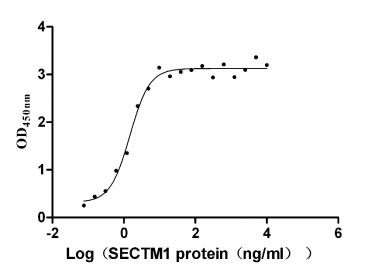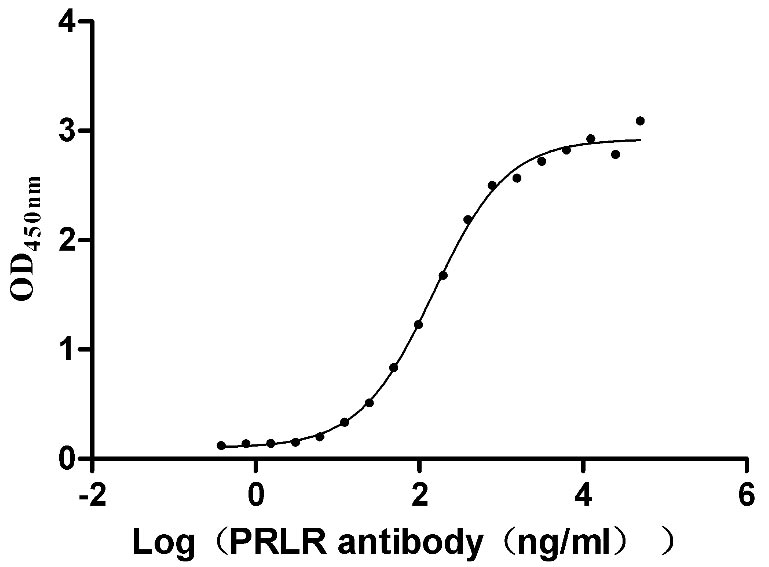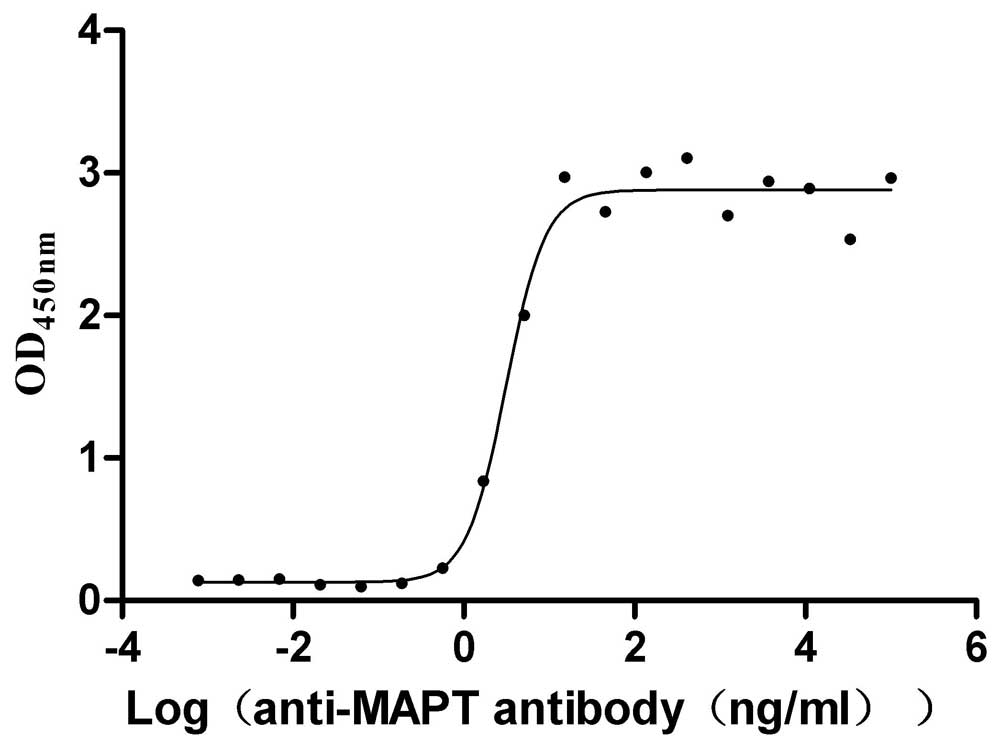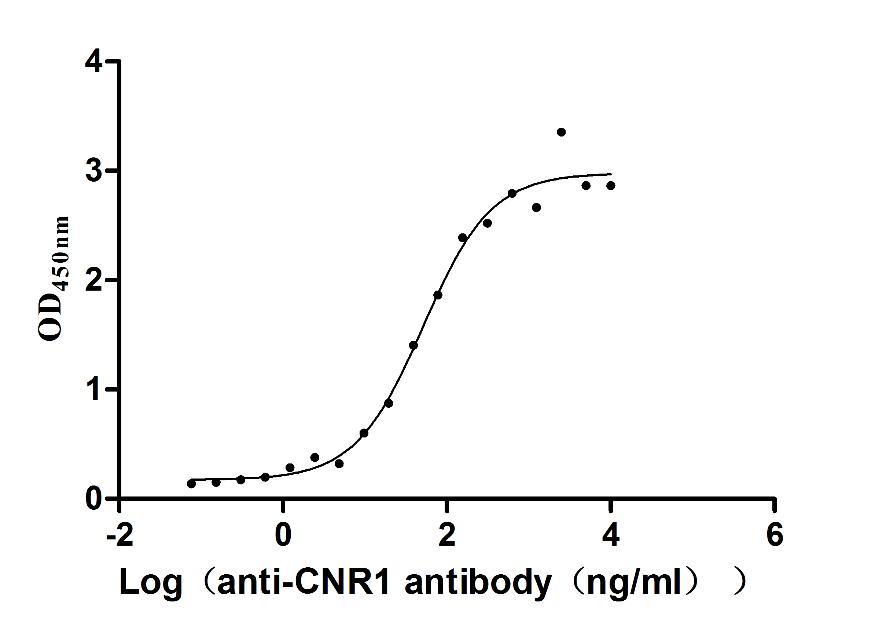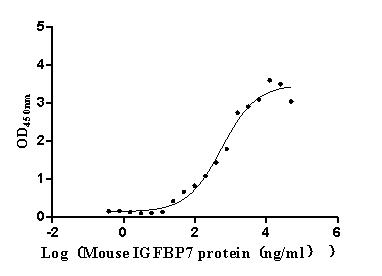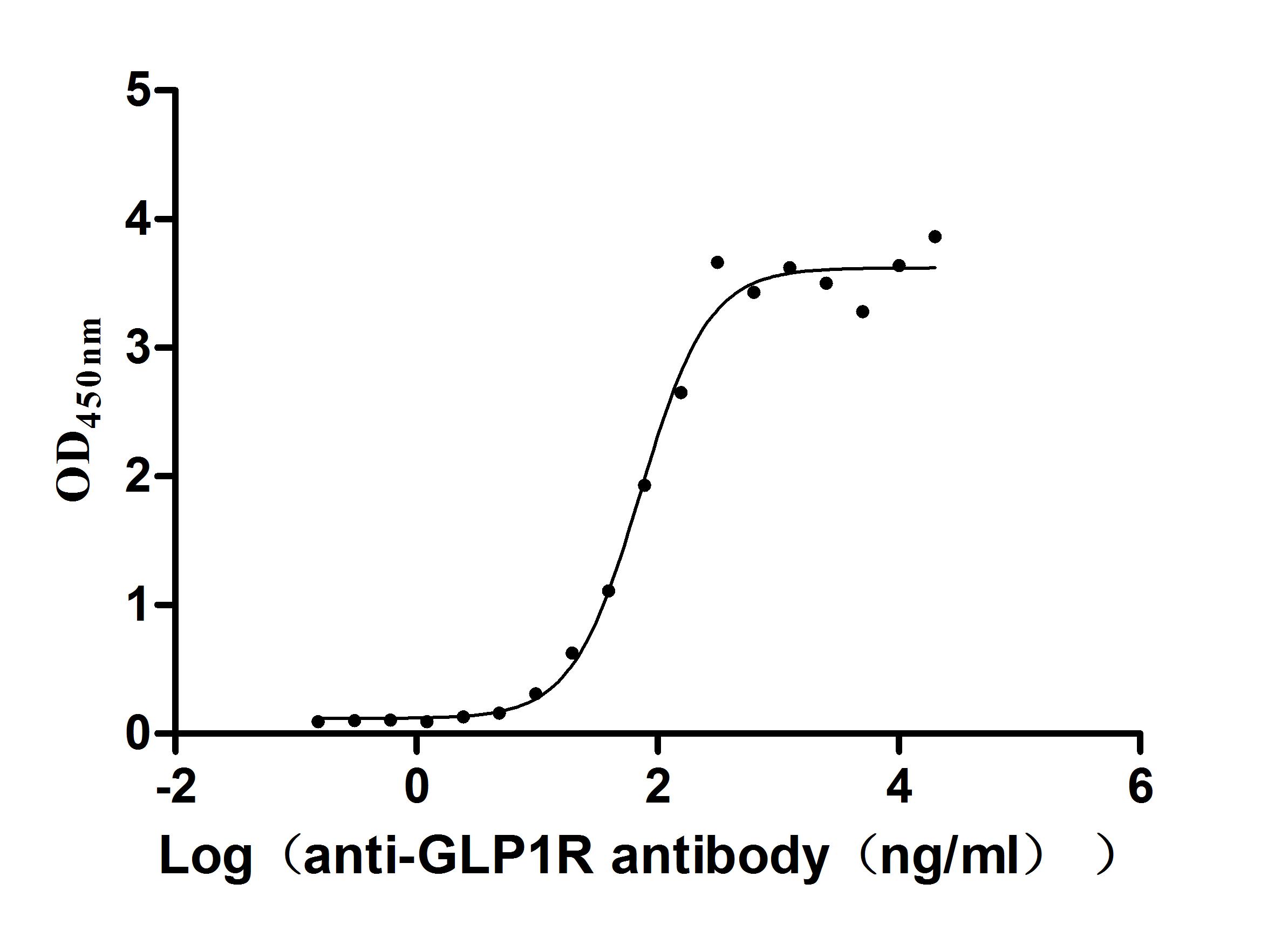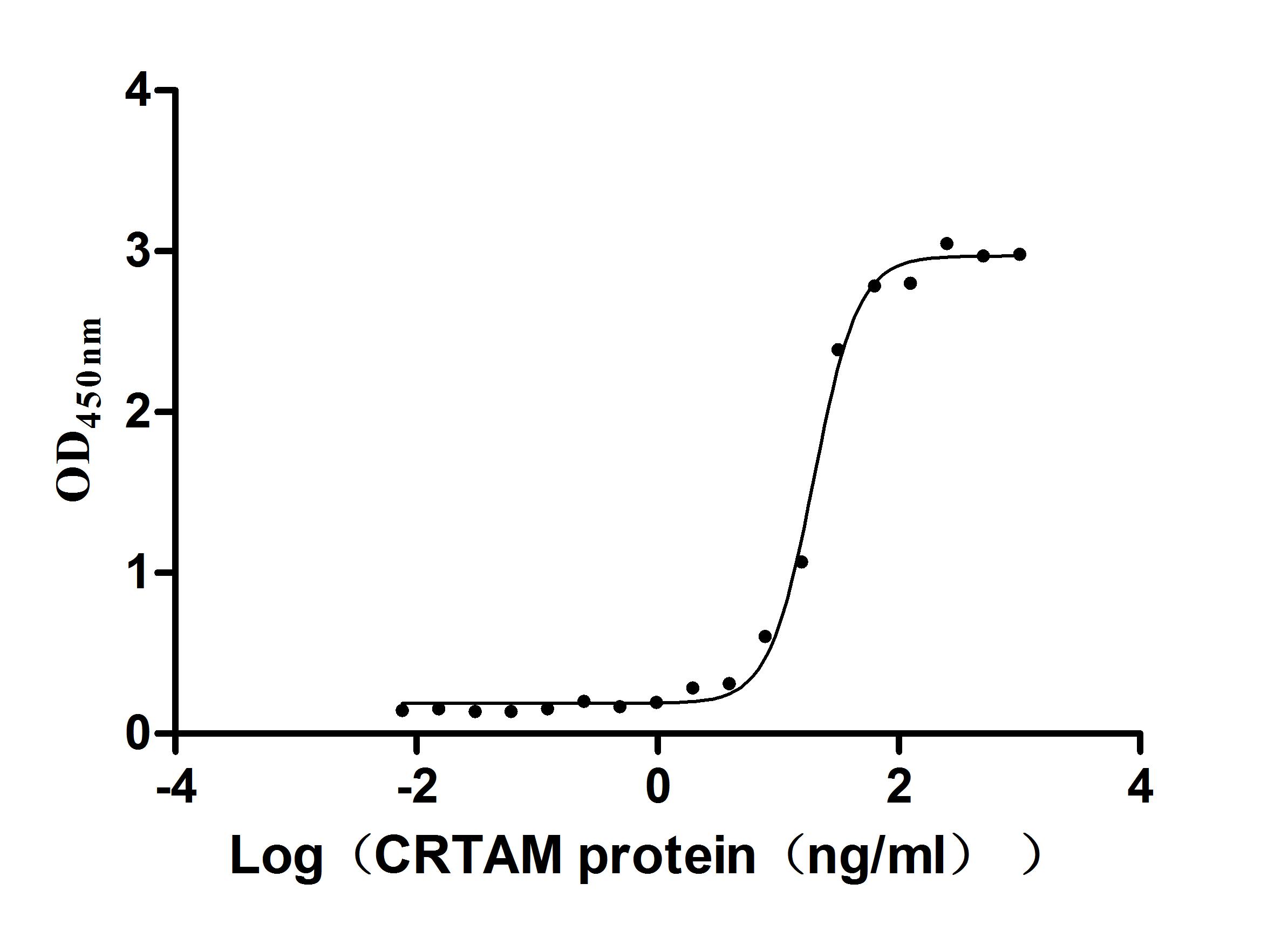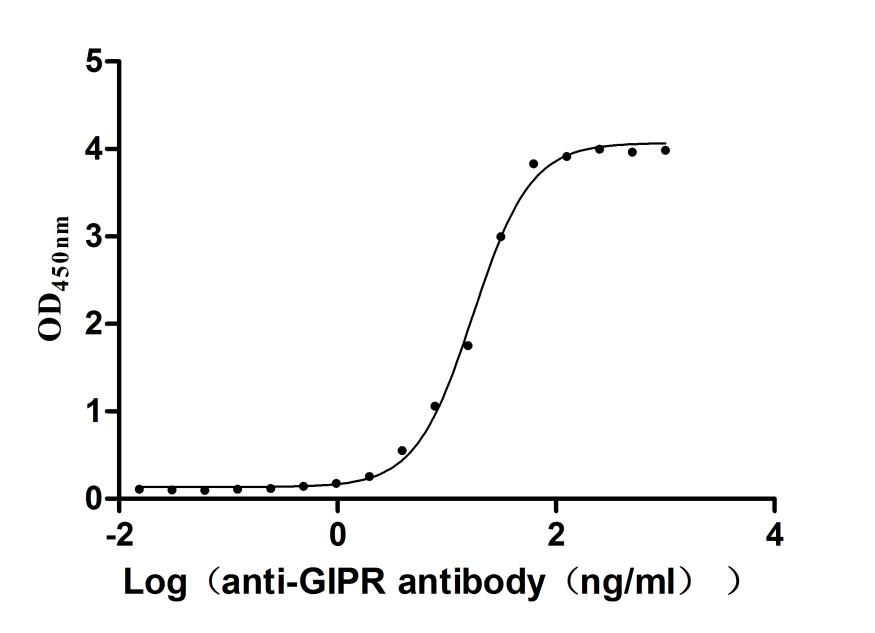Recombinant Human Cartilage oligomeric matrix protein (COMP)
-
货号:CSB-YP005778HU
-
规格:
-
来源:Yeast
-
其他:
-
货号:CSB-EP005778HU
-
规格:
-
来源:E.coli
-
其他:
-
货号:CSB-EP005778HU-B
-
规格:
-
来源:E.coli
-
共轭:Avi-tag Biotinylated
E. coli biotin ligase (BirA) is highly specific in covalently attaching biotin to the 15 amino acid AviTag peptide. This recombinant protein was biotinylated in vivo by AviTag-BirA technology, which method is BriA catalyzes amide linkage between the biotin and the specific lysine of the AviTag.
-
其他:
-
货号:CSB-BP005778HU
-
规格:
-
来源:Baculovirus
-
其他:
-
货号:CSB-MP005778HU
-
规格:
-
来源:Mammalian cell
-
其他:
产品详情
-
纯度:>85% (SDS-PAGE)
-
基因名:
-
Uniprot No.:
-
别名:cartilage oligomeric matrix protein (pseudoachondroplasia; epiphyseal dysplasia 1; multiple); Cartilage oligomeric matrix protein; Cartilage oligomeric matrix protein precursor; COMP; COMP_HUMAN; EDM 1; EDM1; EPD 1; EPD1; Epiphyseal dysplasia 1; Epiphyseal dysplasia 1 multiple; Epiphyseal dysplasia multiple 1; MED; MGC13181; MGC149768; PSACH; pseudoachondroplasia (epiphyseal dysplasia 1; multiple); Pseudoachondroplasia; THBS 5; THBS5; Thrombospondin 5; Thrombospondin-5; Thrombospondin5; TSP5
-
种属:Homo sapiens (Human)
-
蛋白长度:Full length protein
-
表达区域:21-757
-
氨基酸序列QGQSPLGSDL GPQMLRELQE TNAALQDVRE LLRQQVREIT FLKNTVMECD ACGMQQSVRT GLPSVRPLLH CAPGFCFPGV ACIQTESGAR CGPCPAGFTG NGSHCTDVNE CNAHPCFPRV RCINTSPGFR CEACPPGYSG PTHQGVGLAF AKANKQVCTD INECETGQHN CVPNSVCINT RGSFQCGPCQ PGFVGDQASG CQRRAQRFCP DGSPSECHEH ADCVLERDGS RSCVCAVGWA GNGILCGRDT DLDGFPDEKL RCPERQCRKD NCVTVPNSGQ EDVDRDGIGD ACDPDADGDG VPNEKDNCPL VRNPDQRNTD EDKWGDACDN CRSQKNDDQK DTDQDGRGDA CDDDIDGDRI RNQADNCPRV PNSDQKDSDG DGIGDACDNC PQKSNPDQAD VDHDFVGDAC DSDQDQDGDG HQDSRDNCPT VPNSAQEDSD HDGQGDACDD DDDNDGVPDS RDNCRLVPNP GQEDADRDGV GDVCQDDFDA DKVVDKIDVC PENAEVTLTD FRAFQTVVLD PEGDAQIDPN WVVLNQGREI VQTMNSDPGL AVGYTAFNGV DFEGTFHVNT VTDDDYAGFI FGYQDSSSFY VVMWKQMEQT YWQANPFRAV AEPGIQLKAV KSSTGPGEQL RNALWHTGDT ESQVRLLWKD PRNVGWKDKK SYRWFLQHRP QVGYIRVRFY EGPELVADSN VVLDTTMRGG RLGVFCFSQE NIIWANLRYR CNDTIPEDYE THQLRQA
-
蛋白标签:Tag type will be determined during the manufacturing process.
The tag type will be determined during production process. If you have specified tag type, please tell us and we will develop the specified tag preferentially. -
产品提供形式:Lyophilized powder
Note: We will preferentially ship the format that we have in stock, however, if you have any special requirement for the format, please remark your requirement when placing the order, we will prepare according to your demand. -
复溶:We recommend that this vial be briefly centrifuged prior to opening to bring the contents to the bottom. Please reconstitute protein in deionized sterile water to a concentration of 0.1-1.0 mg/mL.We recommend to add 5-50% of glycerol (final concentration) and aliquot for long-term storage at -20℃/-80℃. Our default final concentration of glycerol is 50%. Customers could use it as reference.
-
储存条件:Store at -20°C/-80°C upon receipt, aliquoting is necessary for mutiple use. Avoid repeated freeze-thaw cycles.
-
保质期:The shelf life is related to many factors, storage state, buffer ingredients, storage temperature and the stability of the protein itself.
Generally, the shelf life of liquid form is 6 months at -20°C/-80°C. The shelf life of lyophilized form is 12 months at -20°C/-80°C. -
货期:Delivery time may differ from different purchasing way or location, please kindly consult your local distributors for specific delivery time.Note: All of our proteins are default shipped with normal blue ice packs, if you request to ship with dry ice, please communicate with us in advance and extra fees will be charged.
-
注意事项:Repeated freezing and thawing is not recommended. Store working aliquots at 4°C for up to one week.
-
Datasheet :Please contact us to get it.
相关产品
靶点详情
-
功能:May play a role in the structural integrity of cartilage via its interaction with other extracellular matrix proteins such as the collagens and fibronectin. Can mediate the interaction of chondrocytes with the cartilage extracellular matrix through interaction with cell surface integrin receptors. Could play a role in the pathogenesis of osteoarthritis. Potent suppressor of apoptosis in both primary chondrocytes and transformed cells. Suppresses apoptosis by blocking the activation of caspase-3 and by inducing the IAP family of survival proteins (BIRC3, BIRC2, BIRC5 and XIAP). Essential for maintaining a vascular smooth muscle cells (VSMCs) contractile/differentiated phenotype under physiological and pathological stimuli. Maintains this phenotype of VSMCs by interacting with ITGA7.
-
基因功能参考文献:
- Adolescent idiopathic scoliosis patients had significantly high COMP promoter methylation and low gene expression. Positive and high COMP promoter methylation was correlated with young age and high Cobb angle of main curve PMID: 28951969
- Our findings indicated that hepatic stellate cells-derived COMP collaborated with CD36 and subsequently played an essential role in MEK/ERK and PI3K/AKT-mediated hepatocellular carcinoma (HCC) progression. COMP might act as a promising target for the diagnosis and treatment of aggressive HCC. PMID: 30231922
- These findings suggest that Zalpha domain of human ADAR1 binding with the GAC hairpin stem in COMP can lead to a non-genetic, RNA editing-mediated substitution in COMP that may then play a crucial role in the development of pseudoachondroplasia. PMID: 28924040
- Higher serum COMP levels in knee osteoarthritis reflect knee structural damage. PMID: 29164307
- COMP (and C-reactive protein) serum levels were both associated with the incidence of knee osteoarthritis. PMID: 29351749
- Data indicate cartilage oligomeric matrix protein (COMP) homozygote missense variant [c.1423G>A; p.(D475N)] in 2 severely affected pseudoachondroplasia individuals. PMID: 28685811
- The serum COMP is a promising biomarker in rheumatoid arthritis which reflects disease activity and damage to the articular cartilage. PMID: 28889184
- COMP promoted colon cancer cell proliferation partially through the activation of PI3K/ Akt/ mTOR/ p70S6K pathway. PMID: 29560517
- The findings suggest that upregulation of ADAMTS-7 and down regulation of COMP are associated with human AA. PMID: 28849199
- Data show that a rare missense variant in the COMP gene (cartilage oligomeric matrix protein) and a frameshift variant in the CHADL gene (chondroadherin-like protein) strongly associate with osteoarthritis total hip replacement. PMID: 28319091
- COMP is a novel biomarker in breast cancer, which contributes to the severity of the disease by metabolic switching and increasing invasiveness and tumor cell viability, leading to reduced survival in animal models and human patients. PMID: 27065333
- The average sCOMP level was highest among the controls and lowest among the infected children. In the juvenile idiopathic arthritis patients, the level of sCOMP was not associated with the level of CRP or with clinical signs of disease activity. PMID: 27385219
- COMT Val158Met polymorphism may influence responses to dextromethorphan (30 mg/d) by decreasing depressive symptoms in BD patients. PMID: 27930497
- The serum COMP level has the potential to be used as a biological marker for differentiating between patients with rheumatoid arthritis and healthy individuals. PMID: 27217240
- The current study expanded the mutation spectrum of the COMP gene, and contributes to the understanding of phenotype/genotype of COMPassociated diseases. PMID: 27432013
- In the absence of ultrasonographic knee cartilage deformation, the response of serum lubricin and COMP following acute vigorous exercise indicates an increase in joint lubrication and cartilage metabolism, respectively, which appears largely independent of exercise modality. PMID: 27251407
- Running appears to decrease knee intra-articular pro-inflammatory cytokine concentration and facilitates the movement of COMP from the joint space to the serum. PMID: 27699484
- Results suggest that serum oligomeric matrix protein and hyaluronic acid (COMP and HA) concentrations can be used to predict early cartilage lesions in the knee. PMID: 26634947
- Serum COMP levels are predictive of subsequent structural changes and incidence of painful knee osteoarthritis. PMID: 26848781
- The expression of COMP in circulation reflects the severity of rheumatoid arthritis. PMID: 27455560
- findings suggest that Cartilage oligomeric matrix protein (COMP) is associated with the stage of liver fibrosis in chronic hepatitis C PMID: 26269256
- The GG genotype of Med23 gene associate with Cognitive Decline and Dementia. PMID: 25835418
- determined if structural differences of the TSPs imparted different effects on vascular smooth muscle cell functions critical to the formation of neointimal hyperplasia PMID: 26168731
- COMP does not directly modify the expression of genes involved in cartilage homeostasis in contrast to several other cartilage matrix proteins. PMID: 25111190
- Overexpression of COMP inhibits BMP-2-induced osteogenic differentiation and promotes BMP-2-induced chondrogenic differentiation. PMID: 25430711
- Real-time polymerase chain reaction (RT-PCR) assay presented significantly higher (p<0.01) COMP expression of mesenchymal stem cells cultured with HA/COMP multilayered films. PMID: 25380520
- Mutations in specific residues and/or regions of the type III repeats of COMP are significantly associated with either Pseudoachondroplasia or multiple epiphyseal dysplasia. PMID: 24595329
- Serum COMP was not acutely influenced by experimental anterior knee pain during running. PMID: 24907621
- Novel cartilage oligomeric matrix protein (COMP) neoepitopes identified in synovial fluids from patients with joint diseases using affinity chromatography and mass spectrometry. PMID: 24917676
- Variants within the cartilage oligomeric matrix protein (COMP) gene are not associated with Achilles tendinopathy PMID: 23875975
- COMP-C3b complexes are found in the serum of patients with systemic sclerosis PMID: 24330664
- COMP is up-regulated in idiopathic pulmonary fibrosis. PMID: 24376648
- COMP-C3b levels were higher in patients with rheumatoid arthritis than in healthy controls and lower in extraarticular rheumatoid arthritis (ExRA) than in rheumatoid arthritis controls. PMID: 24187101
- Athletes with femoroacetabular impingement had a 24% increase in plasma COMP levels. PMID: 23959964
- A mutation c.1048_1116del in exon 10, inherited from his father who did not demonstrate any phenotypic feature of PSACH PMID: 24229584
- Enhanced deposition of COMP is a common feature in fibrotic skin pathologies. PMID: 23507196
- This study demonstrates that COMP enhances the osteogenic activity of BMP-2, both in-vitro and in-vivo. PMID: 23528838
- Early increase in serum-COMP is associated with joint damage progression over the first five years in patients with rheumatoid arthritis. PMID: 23915292
- DNA sequencing analysis of the COMP gene revealed a heterozygous mutation. PMID: 23562786
- serum levels of COMP in Kashin-Beck disease were increased compared with healthy controls, but lower than in osteoarthritis patients, and the increase was not correlated with disease severity. PMID: 22068351
- COMPcc may be involved in signalling functions in which hydrophilic ligands are involved PMID: 23133613
- The proximal 3 Kb of the human cartilage oligomeric matrix protein promoter is sufficient to mediate a mechanoresponse in human articular chondrocytes and stem cells. PMID: 22764748
- Data indicate that cartilage oligomeric matrix protein (COMP-C3b levels are elevated in several rheumatologic diseases and correlate with inflammatory measures in rheumatoid arthritis (RA). PMID: 22264230
- Serum COMP was not related to endothelial function in patients with rheumatoid arthritis , or to other cardiovascular risk factors studied. PMID: 22660798
- Detection of cartilage oligomeric matrix protein using a quartz crystal microbalance. PMID: 22163547
- Serum COMP early in disease is a predictor of mortality in systemic sclerosis patients. PMID: 22253028
- Type III repeat region COMP mutations have been identified in 27 of the 28 patients with pseudoachondroplasia. COMP mutations have been identified in 37 patients with multiple epiphyseal dysplasia, which were distributed between nine exons. PMID: 21922596
- Study conclude that TGF-beta1 binds to COMP and that TGF-beta1 bound to COMP has enhanced bioactivity. PMID: 21940632
- Radiographic findings in patients with COMP and MATN3 mutations showed marked abnormalities in hip and knee joints. PMID: 21965141
- COMP facilitates keloid formation by accelerating collagen deposition, thus providing a new therapeutic target. PMID: 21872564
显示更多
收起更多
-
相关疾病:Multiple epiphyseal dysplasia 1 (EDM1); Pseudoachondroplasia (PSACH)
-
亚细胞定位:Secreted, extracellular space, extracellular matrix.
-
蛋白家族:Thrombospondin family
-
组织特异性:Abundantly expressed in the chondrocyte extracellular matrix, and is also found in bone, tendon, ligament and synovium and blood vessels. Increased amounts are produced during late stages of osteoarthritis in the area adjacent to the main defect.
-
数据库链接:
HGNC: 2227
OMIM: 132400
KEGG: hsa:1311
STRING: 9606.ENSP00000222271
UniGene: Hs.1584
Most popular with customers
-
Recombinant Human T-cell antigen CD7 (CD7), partial (Active)
Express system: Mammalian cell
Species: Homo sapiens (Human)
-
Recombinant Human Prolactin receptor (PRLR), partial (Active)
Express system: Mammalian cell
Species: Homo sapiens (Human)
-
Recombinant Macaca mulatta Microtubule-associated protein tau (MAPT) (Active)
Express system: Mammalian cell
Species: Macaca mulatta (Rhesus macaque)
-
Recombinant Human Cannabinoid receptor 1 (CNR1)-VLPs (Active)
Express system: Mammalian cell
Species: Homo sapiens (Human)
-
Recombinant Mouse Complement component C1q receptor (Cd93), partial (Active)
Express system: Mammalian cell
Species: Mus musculus (Mouse)
-
Recombinant Human Glucagon-like peptide 1 receptor (GLP1R), partial (Active)
Express system: Mammalian cell
Species: Homo sapiens (Human)
-
Recombinant Human Cell adhesion molecule 1 (CADM1), partial (Active)
Express system: Mammalian cell
Species: Homo sapiens (Human)
-
Recombinant Human Gastric inhibitory polypeptide receptor(GIPR),partial (Active)
Express system: Mammalian cell
Species: Homo sapiens (Human)


